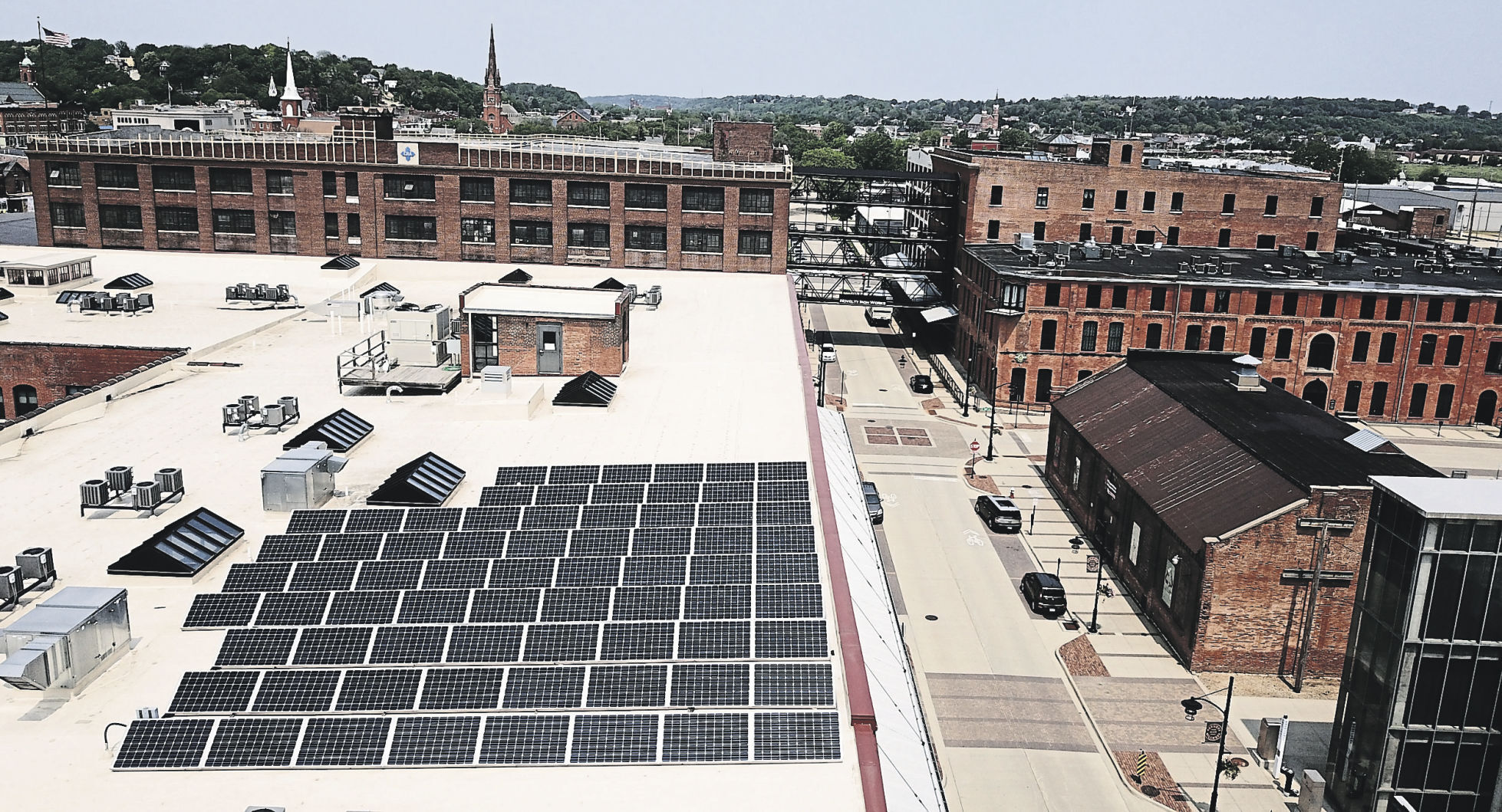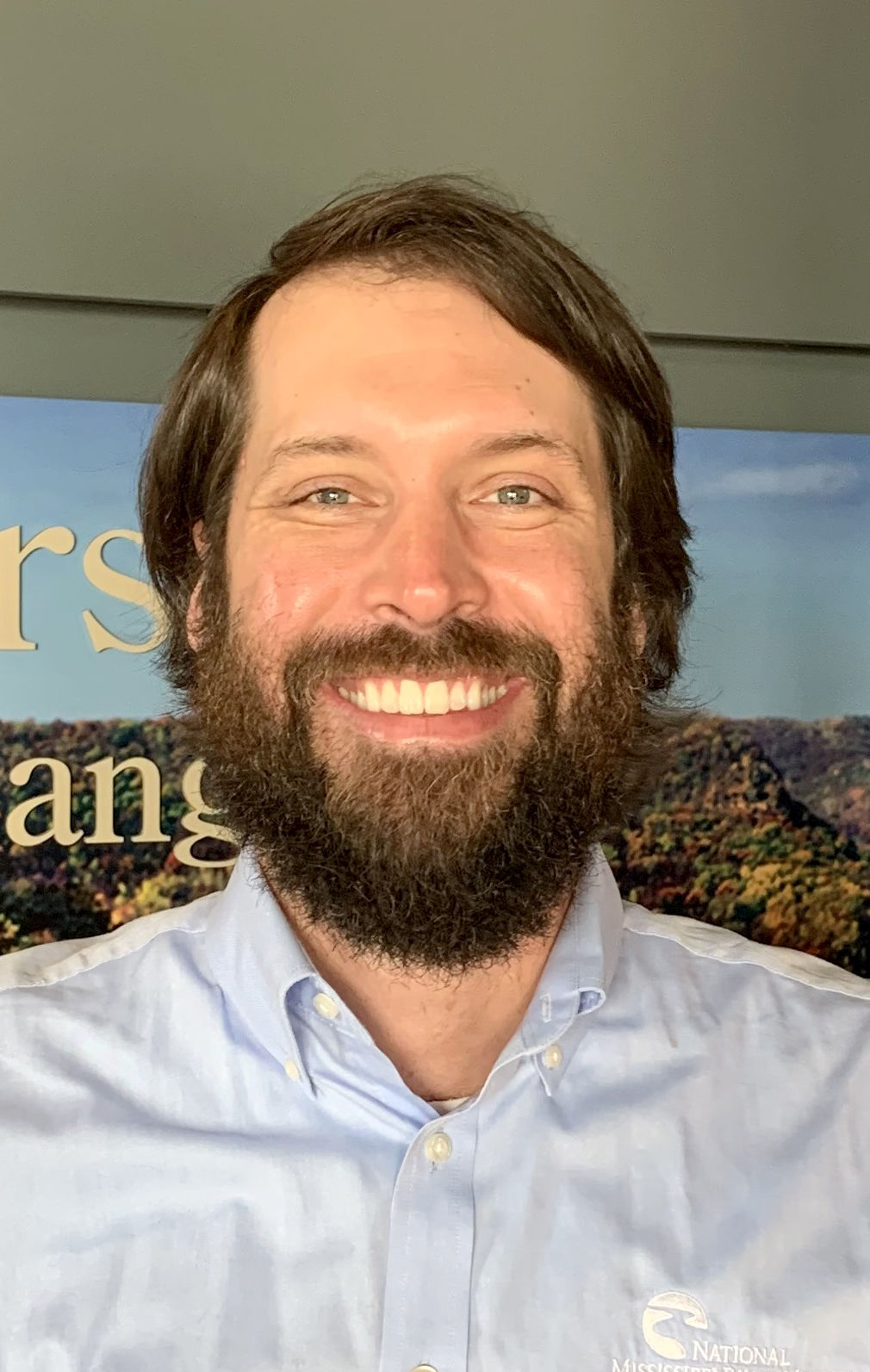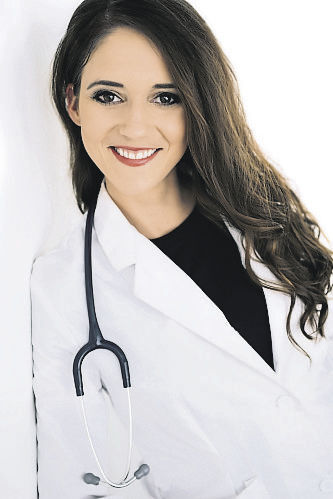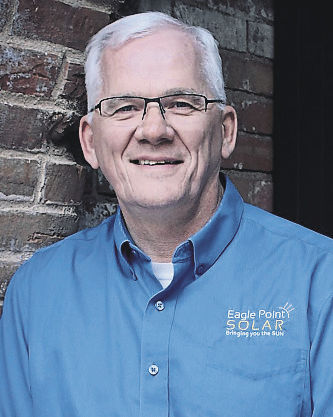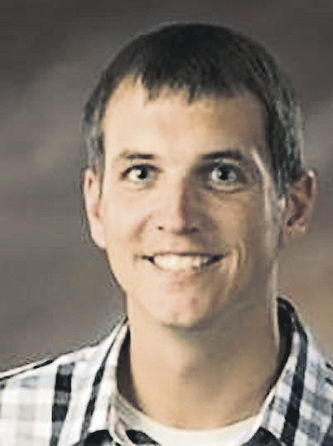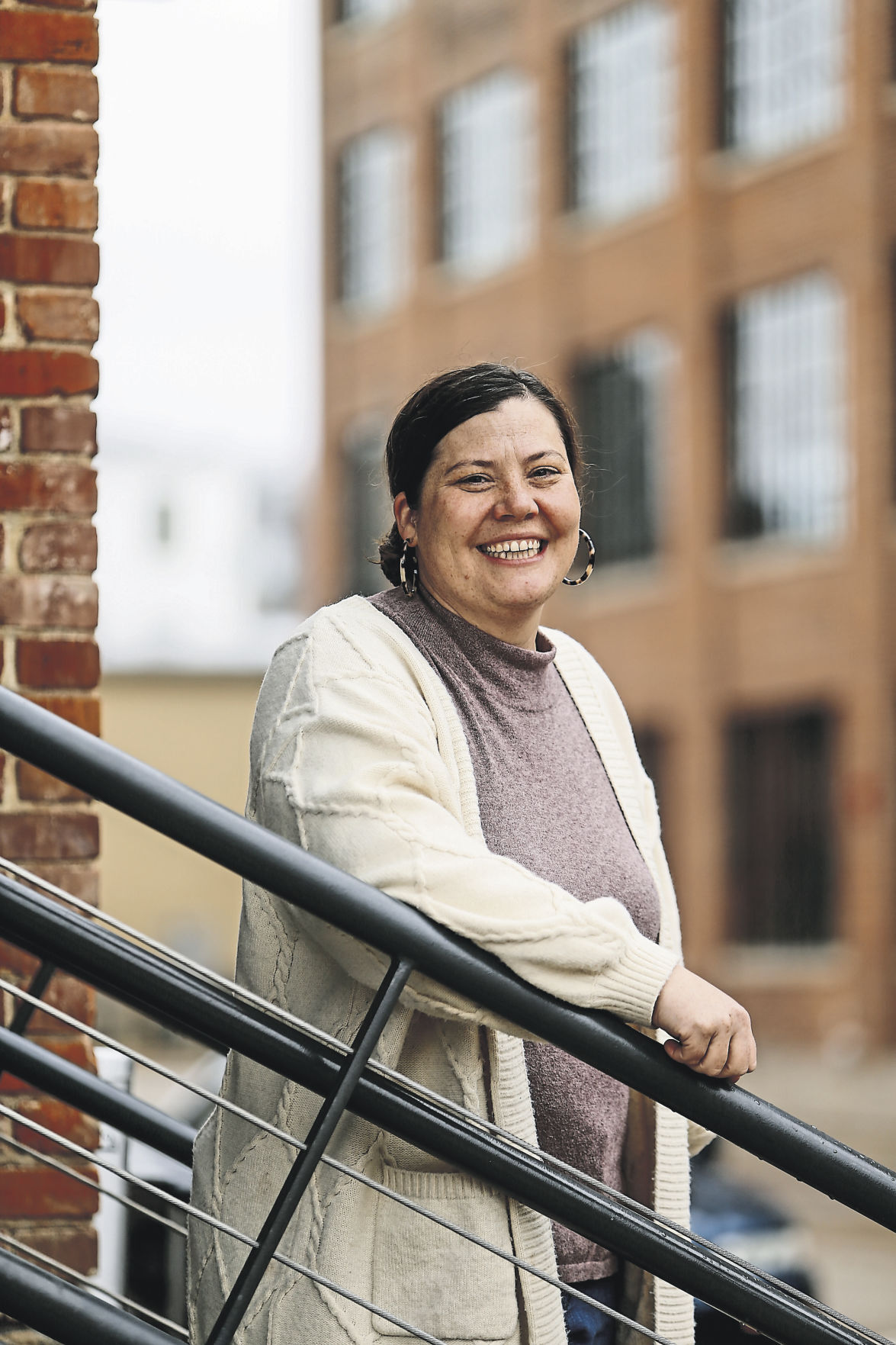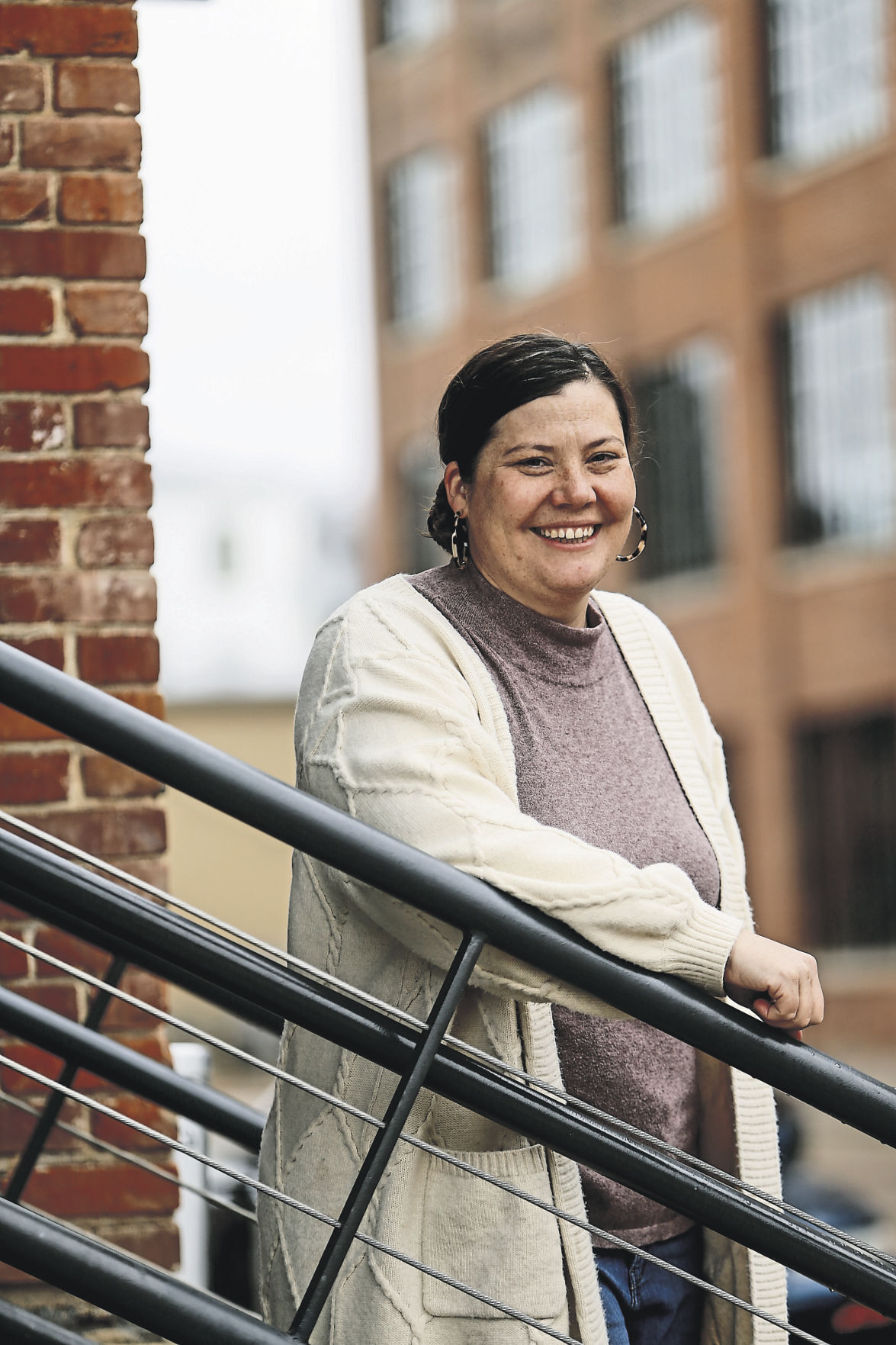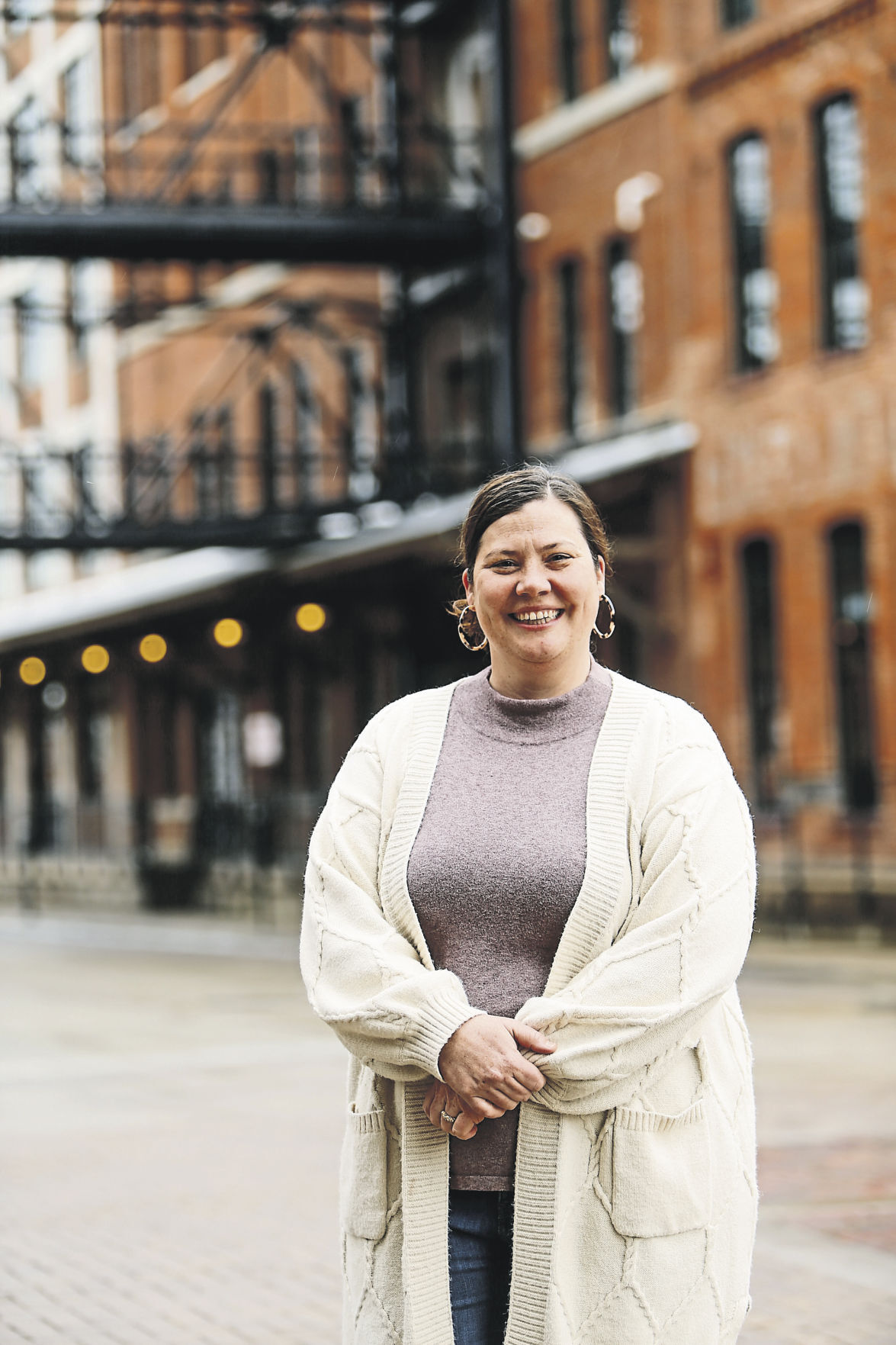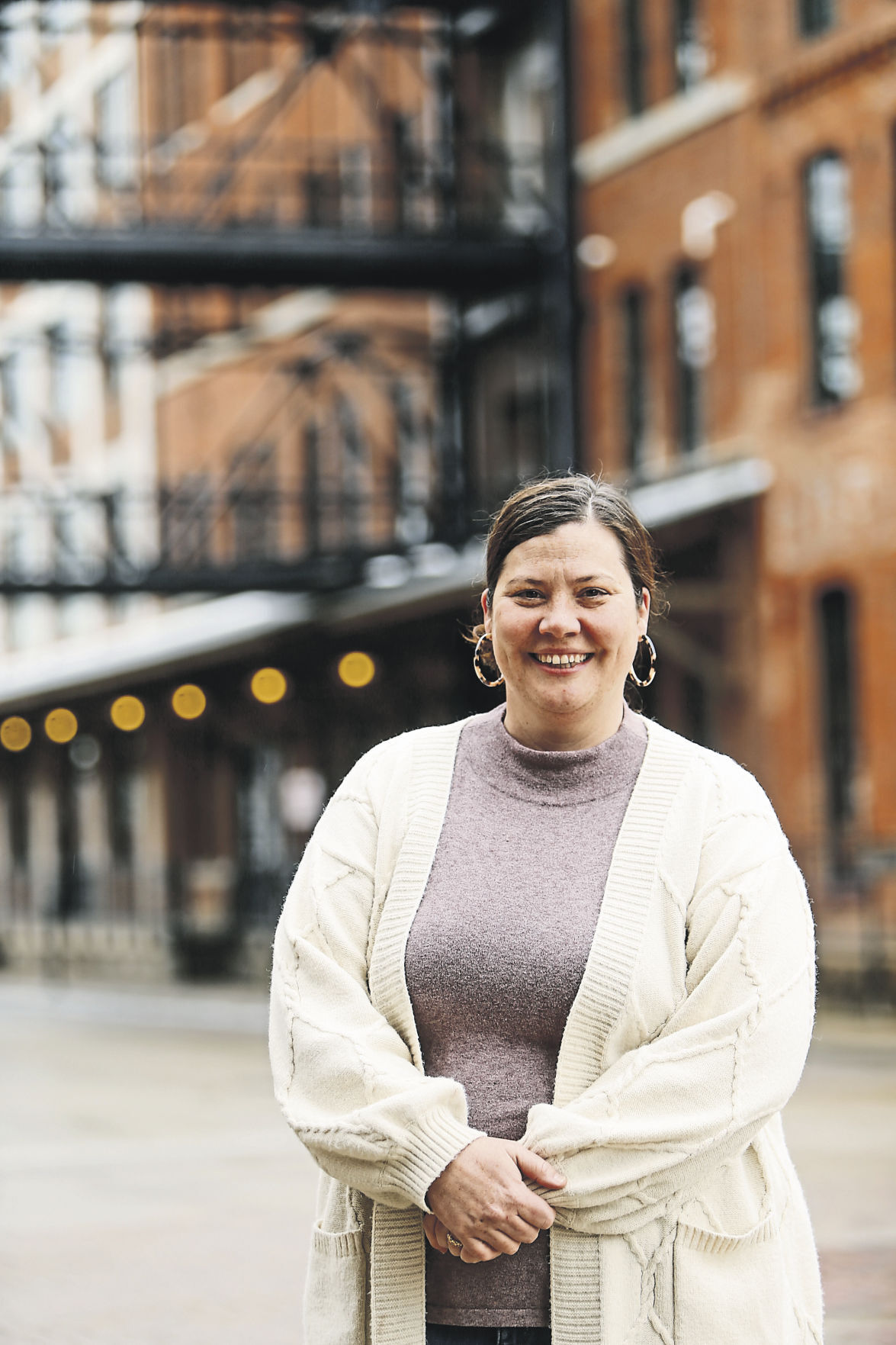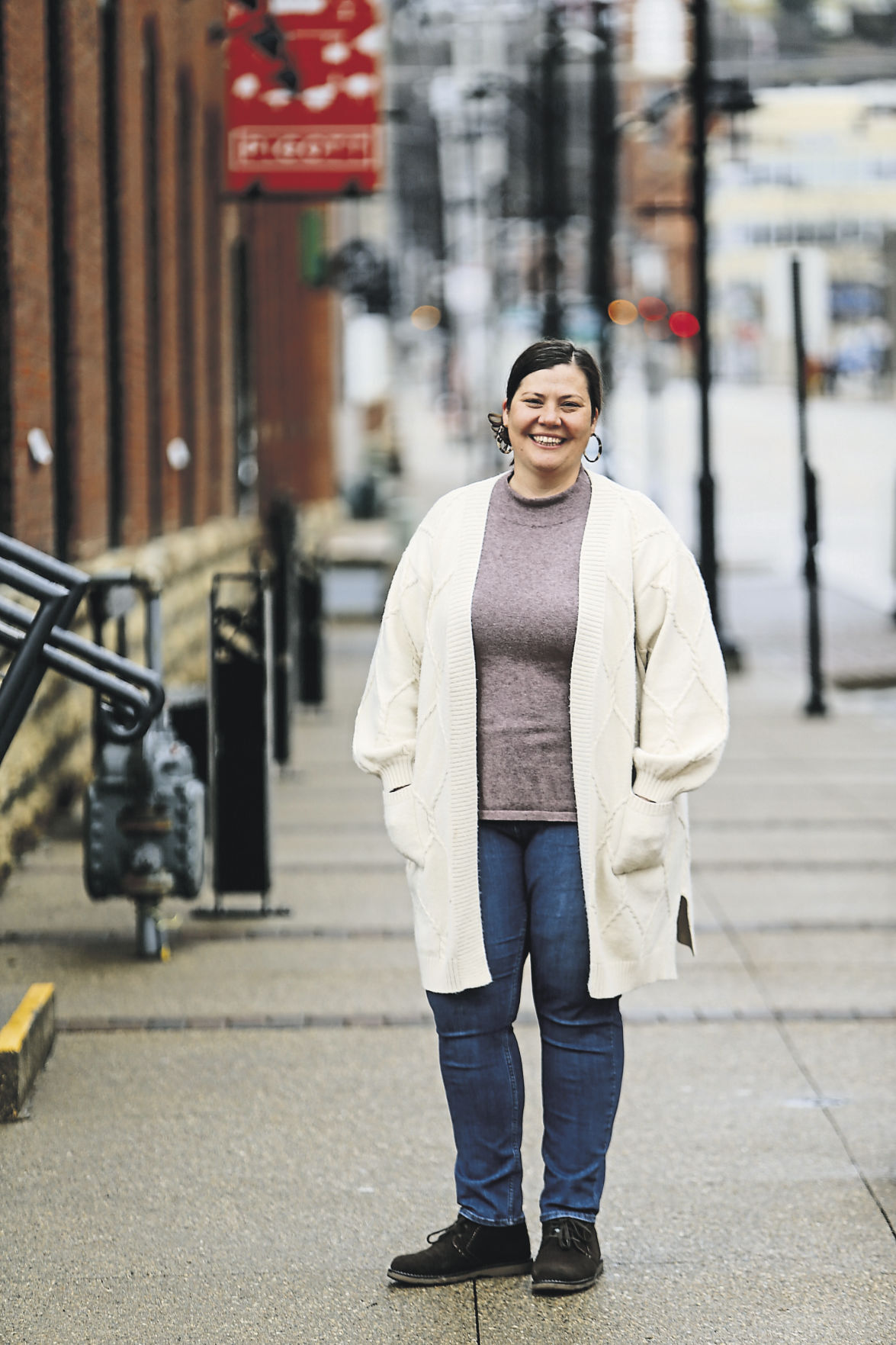Since 2006, Sustainable Dubuque has worked to ensure that the community is using sustainable methods by preserving and restoring environmental integrity.
Sustainable Dubuque
With an eye to the future, a group of passionate Dubuque citizens started Sustainable Dubuque with the support of the City of Dubuque. The group sought to look at ways Dubuque could improve the environment by reducing emissions, preserving and managing clean water and healthy air and preserving and restoring natural plants and animals to the area.
“Sustainable Dubuque is a City Council adopted, community-created, citizen-led initiative working to expand awareness, create partnerships and encourage initiatives involving all sectors of our community,” said Sustainable Community Coordinator Gina Bell.
“Sustainability measures are preventative and include resilient, healthy communities lower health care costs and recovery costs and drive innovation,” Bell said. “Green jobs increase prosperity opportunities, as well. Sustainable Dubuque grants support a variety of projects that improve economic prosperity while considering the environment and equity.”
Bell is responsible for delivering the mayor and City Council’s sustainability and resiliency priorities across city departments and with citizens, businesses and community partners to implement the 50% by 2030 Community Climate Action and Resiliency Plan.
The plan is a grassroots-created target to achieve community-wide greenhouse gas reduction 50% below 2003 levels by the year 2030 and was adopted by the city council in 2011. Sustainable Dubuque will play an important role in the implementation of the plan.
In March, Sustainable Dubuque hosted a Green Iowa AmeriCorps Energy and Community five-member team. Green Iowa AmeriCorps Energy and Community members donate more than 50,000 service hours annually to fulfill the goal to help Iowans become more energy efficient by offering free residential audits and weatherization, energy and environmental education and community outreach services.
Home weatherization including caulking windows and installing weather stripping around door frames can save a homeowner $50 to $350 annually.
The Sustainable Dubuque team partnered with the Dubuque Area Solid Waste Agency-sponsored Sustainable Schools AmeriCorps members. Both teams worked together to support the local community in waste reduction and energy efficiency by providing audit and weatherization services throughout Dubuque County and beyond.
Other community projects that Sustainable Dubuque has been involved in include the Millwork District Revitalization, which includes sustainable renovations of the district’s historic buildings and the Bee Branch Creek restoration that benefits more than 1,100 homes with flood protections and improved storm water management.
Millennials and Gen Z lead sustainability efforts
After witnessing climate change and the damage that has happened to the environment, two generations — millennials and Generation Z — are leading the movement for sustainability and going green by taking action.
Locally, millennials Jared McGovern, Stephanie Grutz and Alex Goerdt, her significant other and business partner, have adopted ways at work and at home to help renew and reuse, preserve and help the environment for future generations.
Stewardship of the waters
As curator of conservation programs at the National Mississippi River Museum & Aquarium, Jared McGovern, 35, draws on his love of water stewardship that began when he was young.
“I was 4 years old when we moved to our house in Thunder Hills, in Peosta (Iowa). There is a wonderfully wild stream valley bordering the front nine of the golf course and that was my wild place; a piece of land in a conservation easement owned by a country club,” McGovern said.
“I started out going on hikes back there with my dad. Over time my friends and I would spend hours in the summer building campsites, playing in the creek and shooting each other with paint balls. I love being outdoors and love learning about wildlife. As I grew up I always believed I would become a vet working with animals in a zoo setting.”
While the veterinarian aspiration didn’t come to fruition, McGovern said that when he was a junior at Western Dubuque High School in 2003, he was chosen to take a trip with Iowa State University in a program called “WY Outdoors.”
The program, led by the College of Education, was designed to recruit future science educators. During this two-week expeditionary learning experience, McGovern was introduced to the core concepts embedded within the science of ecology.
“I visited national parks and learned about how living and nonliving things interacted in these awesome micro and macro systems from rangers wearing awesome hats.”
This experience led McGovern to attend Iowa State University and major in animal ecology with an option in environmental interpretation.
“I was going to spend my professional life getting people jazzed about the outdoors.”
McGovern has spent the bulk of his professional career working with the river museum, having been there 13 years on-and-off including a college internship.
“Our mission is to inspire stewardship of rivers and history by creating educational experiences where history and rivers come alive.”
“Stewardship requires action, but before you can act, you need to know and to understand the value of nature to care, and we need to care about nature to act. This is how I’ve gone green. If I am to advocate for change, I need to be that change.”
“My mother and father taught me respect, kindness, love, leadership and integrity, among other things. These values led me to go green because I care deeply about other living things, especially other people,” McGovern said.
“My mother Lynn loves to putz in her yard, I love to putz in my yard and everything I do is to either grow food for my family or food for wildlife.”
The connections with his family expanded.
“My father and I hunted, fished, camped, hiked in the woods and played in the water. My parents introduced their children to nature. They led me to my wild places growing up and gave me the freedom to explore them. I learned how to recycle, to be conscious of my purchasing decisions, value the outdoors and donate to conservation causes from my parents”
“My parents nurtured my value system and inspired me to care about the impact I have on the world and on others.
McGovern said that in order for the museum to inspire stewardship of rivers, staff members have to practice what they preach.
“Everyone who works at the river museum is a conservationist. Every department oversees and champions sustainable practices. Are we perfect? No. Do we always look to do better? Yes.”
Every department has adopted processes and procedures which help the environment. Housekeeping uses Green Works cleaning solutions, reusable rags, composting of Delta brand paper towels and carpet cleaning without using harmful chemicals and odors. The facilities department has stopped using pesticides and mows the grass at the second highest mower setting.
Purchasing decisions in the gift shop are evolving to align with the museum’s mission and include finding plush toys that are made using recycled plastic bottles and working with vendors that use sustainable packing for both shipping and selling. Visitors can add one dollar to their gift shop purchase to donate to museum conversation efforts.
Museum visitors notice the use or lack of sustainable products.
“It was a combination of our customer comments and leadership from our Harbor View Grill Manager, Chad Olson that led us to eliminate single-use plastic straws and purchase reusable cutlery in place of plastic disposal forks, knives and spoons.”
The River Museum encourages everyone in their communities to join them in being better, and they ask that you, Take CAARE — Take Conservation Action through Advocacy, Research and Engagement.
“Advocate with us for positive sustainable change, supports our and our partner’s research into wildlife and water quality conservation, and join us and our partners in the field and at your homes doing active conservation and sustainability focused work. Oh, and we have fun when doing all of this,” McGovern said.
In his personal life, McGovern makes a point to purchase from companies that he considers ethical.
“Our grocery shopping and the local businesses we support are predicated on their company values of inclusivity, philanthropy and sustainable practices.”
“I love seafood and I live in Iowa. I am religious in my and my family’s pursuit to identify and only purchase seafood which is labeled as sustainably sourced. My tool of choice in this endeavor is the Seafood Watch Program managed by the Monterey Bay Aquarium.”
He likes to shop local and buy used items when possible. He admits there are times when he hits “add to cart” and a package from Amazon shows up at his doorstep.
“Going green is a continuous improvement process. There is always more we can do to be sustainable. We are always striving to do better, and that’s OK, every bit helps. My best advice to others is to just start somewhere and build from there.”
Health and the Environment
When doing the build-out for their three businesses, Stephanie Grutz, 33, and Alex Goerdt, 38, used eco-certified bamboo flooring, upcycled drop ceiling tiles and eco-friendly paint, varnish and stains.
“We were really conscious of limiting chemical exposures in the clinic and to use materials that were people and Mother Nature friendly. We also use chemical-free cleaners, organic linens and try to limit our need for disposable items,” said Grutz, an advanced registered nurse practitioner and certified family nurse practitioner.
“Our customers enjoy coming into an atmosphere knowing we care about their health and the health of the Earth,” Grutz said.
“They appreciate the bio-degradable cups, reverse osmosis water and hand towels, but most importantly, they like that they can come into the clinic and know that they are in a space that is chemical-free and truly helping meet their goals of living healthier lives.”
Grutz and Goerdt own Vive IV Therapy, Balance Integrative Health & Wellness and Select Balance Supplements.
Vive IV Therapy specializes in intravenous nutritional therapy to provide nutrients, vitamins, minerals and amino acids to help patients stay healthy and give the body the nutrition that could be missing from their diet.
Balance Integrative Health & Wellness provides integrative medicine which is a natural healing art form. “We connect mind, body and spirit when looking at the overall health of a person,” Grutz explained. “All three are interconnected and can play significant roles in the health of an individual.”
Select Balance Supplements sells supplements and vitamins which are free of fillers, artificial colors, unnecessary additives or sugars. The supplements are also gluten and dairy-free.
Grutz was diagnosed with an autoimmune disease around 2010 while in her early 20s. She started looking more in-depth into natural products and then went all-in when she became a nurse practitioner in 2014.
“My parents grew up in a generation where all these new chemicals and products to make ‘life easier’ were being rolled out. When my parents were children, they were at the start of all the excess chemical exposures.
“Then they had children and raised us in the same environment processed foods and cheap chemicals that were supposed to make everyone’s life easier as both parents went into the workforce,” Grutz said.
“Millennials and now Gen Z and all the future generations have had a lot of health disparities secondary to this way of living, so now more than ever, our generations are working on cleaning up chemicals and living a more green-conscious lifestyle. I have helped my parents change a few of their ways to go green, but it’s still a work in progress.”
Grutz and Goerdt practice sustainability at home, too. They don’t keep chemicals in the house and have lived a more green-conscious way since 2014. They use earth-friendly laundry and dish detergent and a lot of vinegar or hydrogen peroxide for general cleaning.
“Over the years, I cleaned up my beauty products, toothpastes, deodorants and shampoo by switching to chemical-free alternatives,” Grutz said.
“Chemical exposures have contributed too many disorders and diseases that I and my patients go through regularly. Cancer, autoimmune diseases and infertility can all be impacted by toxins and chemical exposures,” Grutz said.
“A few years ago we decided to go ‘bag-free’ and have never looked back,” Goerdt said. “Even though we repurposed the grocery bags as small trash bags and got more than a single use out of them, we never liked having to throw them out. We use reusable bags or boxes when we go to the grocery store. At home and at the clinic, we use plant-based bio-degradable garbage bags.”
“One good thing about social media is that it allows you to connect with like-minded individuals and we share amazing ethical companies with one another. I try to purchase from ethical small businesses when I can,” Grutz said.
“We have watched big corporations time and time again buy out small, ethical brands and cheapen the end product by adding chemicals or changing ingredients. We choose to avoid purchasing from big corporations,” Goerdt said.
Because they have multiple small businesses, Grutz and Goerdt like supporting other small, ethical businesses that are making a positive impact on the world.
Grutz said the biggest obstacle that holds people back from going green is they don’t know where to start or they think they have to make the changes all at once.
“I think the easiest place to start is room-by-room. Start with the laundry room. Get rid of the toxic dryer sheets and chemical scented laundry detergent and go to something without toxic fragrances and chemicals. One popular brand that many people use is 7th Generation.”
“I also enjoy Branch Basics line because with one base solution you can have your laundry detergent, all-purpose cleaner, window cleaner and hand soaps all taken care of.”
Solar Power Saves Money
Harvesting energy from the sun is the mission of Eagle Point Solar. It has installed 75 solar arrays for Dubuque-area businesses since the business opened in 2010.
Larry Steffen, executive vice president/owner, said that the company has installed 2,000 solar arrays in Iowa, Illinois and Wisconsin.
“These solar arrays will create over 45 million kilowatt hours of electricity from the sun,” Steffen said.
Woodward Communications Inc., publisher of the Telegraph Herald, bizTimes.biz and other publications, uses solar power installed by Eagle Point Solar. Other businesses include: Doland Jewelers, Capri College, Dubuque Bank & Trust, Envision Sports Designs, Honkamp Krueger, Spahn & Rose Lumber Co. and Finnin Ford/Kia.
Steffen said since Eagle Point Solar started 11 years ago, prices on solar equipment including solar panels and solar inverters have declined approximately 60%.
“Wire, PVC, conduit and other ancillary solar equipment have followed industry trends having gradual increases each year.”
Solar incentives such as federal and state tax credits, REAP grants and equipment depreciation can help reduce the cost of installing solar by 60%.
The average financial payback is about six years with an average cost reduction of electricity bills by 90%. The average carbon footprint reduction is 1,300 tons of CO2 per array according to statistics provided by Steffen.


